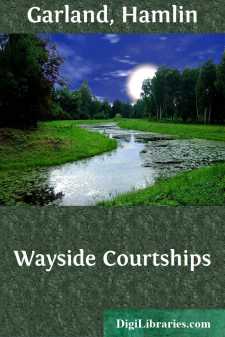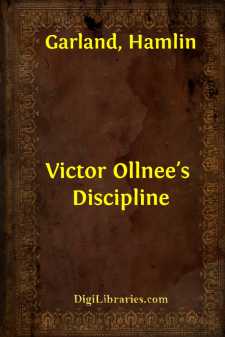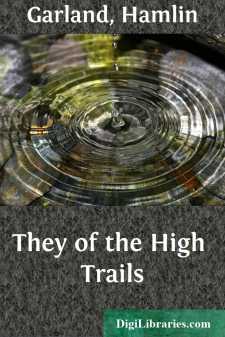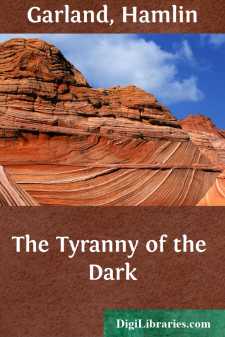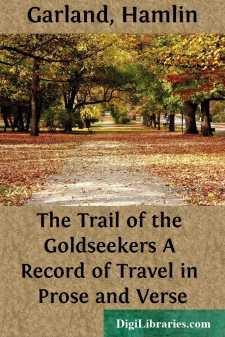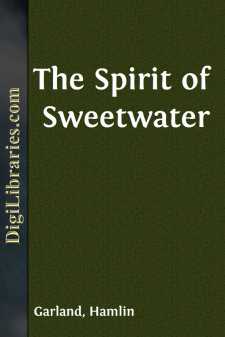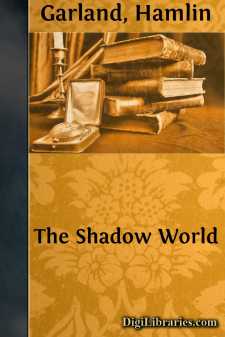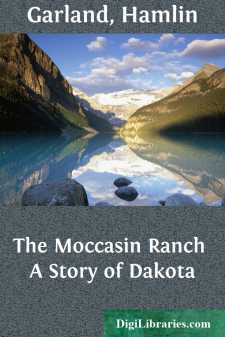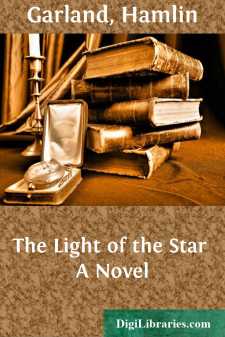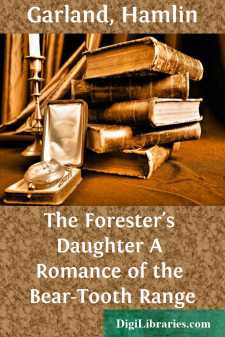Categories
- Antiques & Collectibles 13
- Architecture 36
- Art 48
- Bibles 22
- Biography & Autobiography 813
- Body, Mind & Spirit 142
- Business & Economics 28
- Children's Books 17
- Children's Fiction 14
- Computers 4
- Cooking 94
- Crafts & Hobbies 4
- Drama 346
- Education 46
- Family & Relationships 57
- Fiction 11829
- Games 19
- Gardening 17
- Health & Fitness 34
- History 1377
- House & Home 1
- Humor 147
- Juvenile Fiction 1873
- Juvenile Nonfiction 202
- Language Arts & Disciplines 88
- Law 16
- Literary Collections 686
- Literary Criticism 179
- Mathematics 13
- Medical 41
- Music 40
- Nature 179
- Non-Classifiable 1768
- Performing Arts 7
- Periodicals 1453
- Philosophy 64
- Photography 2
- Poetry 896
- Political Science 203
- Psychology 42
- Reference 154
- Religion 513
- Science 126
- Self-Help 84
- Social Science 81
- Sports & Recreation 34
- Study Aids 3
- Technology & Engineering 59
- Transportation 23
- Travel 463
- True Crime 29
Hamlin Garland
Hamlin Garland (1860-1940) was an American novelist, short story writer, and essayist known for his realist portrayals of Midwestern farm life. His most famous work, "Main-Travelled Roads" (1891), is a collection of short stories that vividly depict the hardships and struggles of rural farmers. Garland received the Pulitzer Prize for Biography in 1922 for his autobiography "A Daughter of the Middle Border."
Author's Books:
Sort by:
by:
Hamlin Garland
AT THE BEGINNING. She was in the box; he was far above in the gallery. He looked down and across and saw her sitting there fair as a flower and robed like a royal courtesan in flame and snow. Like a red torch flamed the ruby in her hair. Her shoulders were framed in her cloak, white as marble warmed with firelight. Her gloved hands held an opera glass which also glowed with flashing light. His face...
more...
by:
Hamlin Garland
VICTOR READS THE FATEFUL STAR Saturday had been a strenuous day for the baseball team of Winona University, and Victor Ollnee, its redoubtable catcher, slept late. Breakfast at the Beta Kappa Fraternity House on Sunday started without him, and Gilbert Frenson, who never played ball or tennis, and Arnold Macey, who was too effeminate to swing a bat, divided the Sunday morning Star between them. "See...
more...
by:
Hamlin Garland
THE GRUB-STAKER I "There's gold in the Sierra Blanca country—everybody admits it," Sherman F. Bidwell was saying as the Widow Delaney, who kept the Palace Home Cooking Restaurant in the town of Delaney (named after her husband, old Dan Delaney), came into the dining-room. Mrs. Delaney paused with a plate of steaming potatoes, and her face was a mask of scorn as she addressed the group,...
more...
by:
Hamlin Garland
THE SETTING The village of Colorow is enclosed by a colossal amphitheatre of dove-gray stone, in whose niches wind-warped pines stand like spectators silent and waiting. Six thousand feet above the valley floor green and orange slopes run to the edges of perennial ice-fields, while farther away, and peering above these almost inaccessible defences, like tents of besieging Titans, rise three great...
more...
by:
Hamlin Garland
ANTICIPATIONI will wash my brain in the splendid breeze,I will lay my cheek to the northern sun,I will drink the breath of the mossy trees,And the clouds shall meet me one by one.I will fling the scholar's pen aside,And grasp once more the bronco's rein,And I will ride and ride and ride,Till the rain is snow, and the seed is grain.The way is long and cold and lone—But I go.It leads where...
more...
by:
Hamlin Garland
The Spirit of Sweetwater CHAPTER I One spring day a young man of good mental furnishing and very slender purse walked over the shoulder of Mount Mogallon and down the trail to Gold Creek. He walked because the stage fare seemed too high. Two years and four months later he was pointed out to strangers by the people of Sweetwater Springs. "That is Richard Clement, the sole owner of 'The...
more...
by:
Hamlin Garland
FOREWORD This book is a faithful record, so far as I can make it, of the most marvellous phenomena which have come under my observation during the last sixteen or seventeen years. I have used my notes (made immediately after the sittings) and also my reports to the American Psychical Society (of which I was at one time a director) as the basis of my story. For literary purposes I have substituted...
more...
by:
Hamlin Garland
MARCH Early in the gray and red dawn of a March morning in 1883, two wagons moved slowly out of Boomtown, the two-year-old "giant of the plains." As the teams drew past the last house, the strangeness of the scene appealed irresistibly to the newly arrived immigrants. The town lay behind them on the level, treeless plain like a handful of blocks pitched upon a russet robe. Its houses were...
more...
by:
Hamlin Garland
THE LIGHT OF THE STAR FTER the appointment with Miss Merival reached him (through the hand of her manager), young Douglass grew feverishly impatient of the long days which lay between. Waiting became a species of heroism. Each morning he reread his manuscript and each evening found him at the theatre, partly to while away the time, but mainly in order that he might catch some clew to the real woman...
more...
by:
Hamlin Garland
THE HAPPY GIRL The stage line which ran from Williams to Bear Tooth (one of the most authentic then to be found in all the West) possessed at least one genuine Concord coach, so faded, so saddened, so cracked, and so splintered that its passengers entered it under protest, and alighted from it with thanksgiving, and yet it must have been built by honorable men, for in 190- it still made the run of one...
more...


